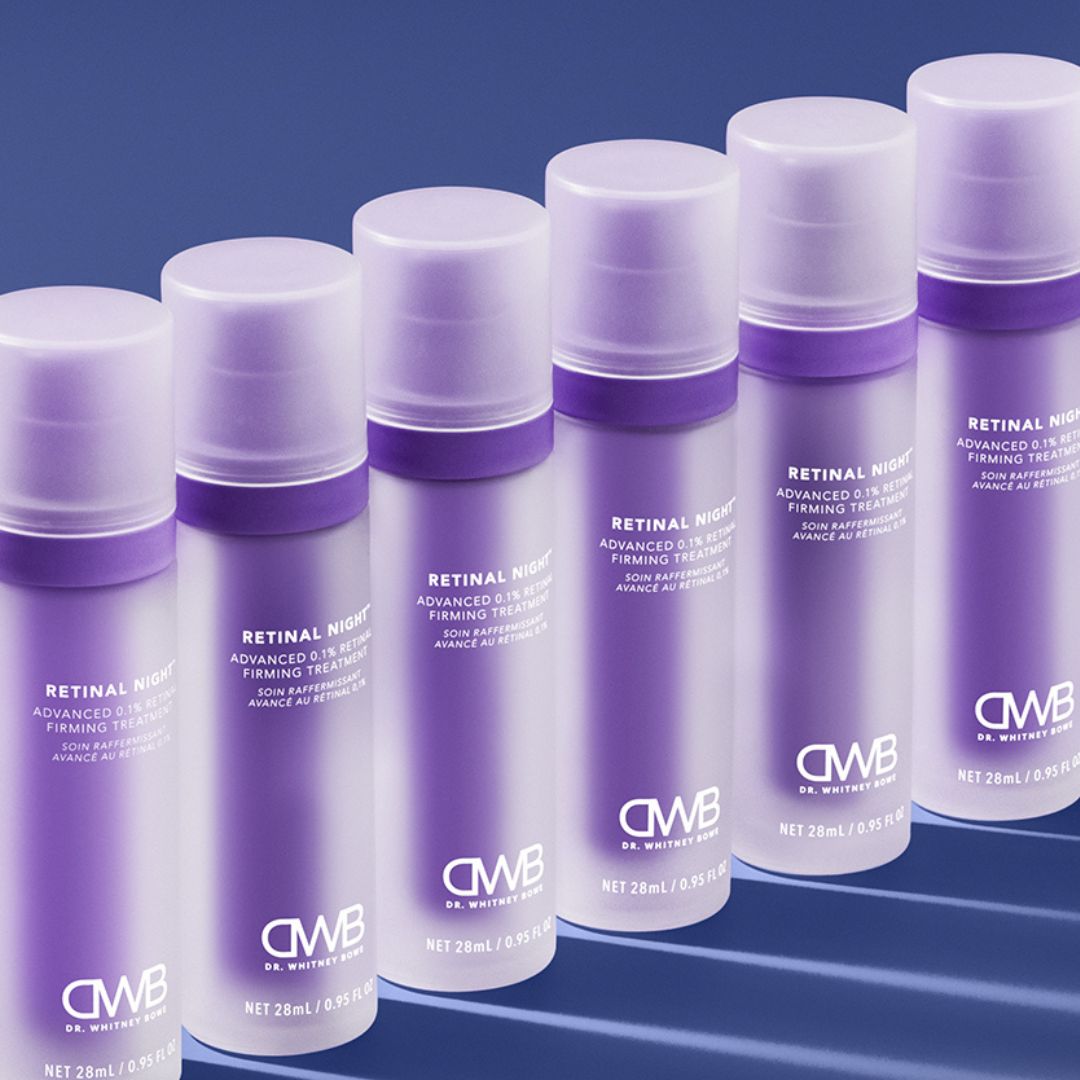Our newest product is dropping soon
Sign up for early access to our latest derm-created, 100% clinically-proven innovation. Shop before everyone else on Sunday, 9/15.

Retinoids are forms of vitamin A, and are considered to be one of the most powerful ingredients in all of skincare. I don’t know a single dermatologist, including myself, who doesn’t use a retinoid every single week (with the exception of during pregnancy). That says something! Retinoids are great for minimizing pores, smoothing texture, and preventing breakouts. Some can also actually help reverse signs of aging in the skin—brightening dark spots, firming and tightening skin, plus smoothing out lines and wrinkles.
That said, not all retinoids are created equal. Most retinoids need to be converted to retinoic acid to work on your skin, and the more conversions your skin has to make, the weaker the retinoid.
Retinoic Acid: Prescription strength retinoid you get from your dermatologist. It’s also known as Tretinoin. Retinoic acid is the form that is biologically active and binds to the retinoid receptors in your skin, immediately going to work. In other words, it doesn’t have to go through any conversions to work on your skin. The downside of retinoic acid is that not everyone can tolerate its strength—some of my patients find it too irritating, and experience skin flaking or stinging a few days after using it.
Retinal: RetiNAL (a.k.a retinaldehyde) is the most potent vitamin A you can get without a prescription. It's 10x more bioavailable than retiNOL, so it works faster, and a lot less is needed to drive impactful results. Here’s why: it only needs to be converted ONE time to work on your skin. Your skin has to convert retiNOL to retiNAL before it turns into retinoic acid. So your skin has to do less gymnastics if you choose retinal to address tone, texture, smoothing lines and wrinkles, and firming skin over time. Derm tip: your retinal should be bright yellow—the color signifies the purity and potency of that ingredient.
So for all these benefits, why don’t we see more retinal products on the market? For starters, it’s a diva to formulate with. It takes a lot of expertise and work to get a retinal formula that’s potent, pure, stable, non-irritating and sensorially pleasing to put on your skin. Because of its potency, it also tends to be a more expensive ingredient to use than other retinoids.
The downside of using retinal: since it’s very powerful, it can be more irritating than weaker retinoids, BUT not if it's formulated the right way. Look for a product that has clinically-proven results that speak to the formula’s tolerability, and also one that’s been clinically-tested on sensitive skin. (This is the retinoid I chose to work with for all of these reasons, and obviously I’m biased because I picked it for my own product line! See: Retinal Night™ Advanced .01% Retinal Firming Treatment).
Retinol: The retinoid most people are familiar with is retiNOL. As mentioned, retinol needs to first be converted to retinal, and then get converted to retinoic acid to get to work in your skin. So, TWO conversions. This video and this video walk you through these concepts in a quick, visual format.
Retinyl: This has to be converted THREE times for your skin to use it, making it the most gentle, but weakest retinoid. I personally haven’t been very impressed by the data backing retinyl.
If you think of all forms of retinoids in terms of your morning cup of coffee, retinoic acid is like getting a double shot of espresso, retinal is like a shot of espresso, retinol is like a classic cup of coffee, and retinyl esters would be your cup of decaf.

So there’s your general overview. We hope this helps you navigate the wonderful world of retinoids, because if you find the right product and use it in an effective routine, it can deliver incredible, clinically-backed benefits to your skin.